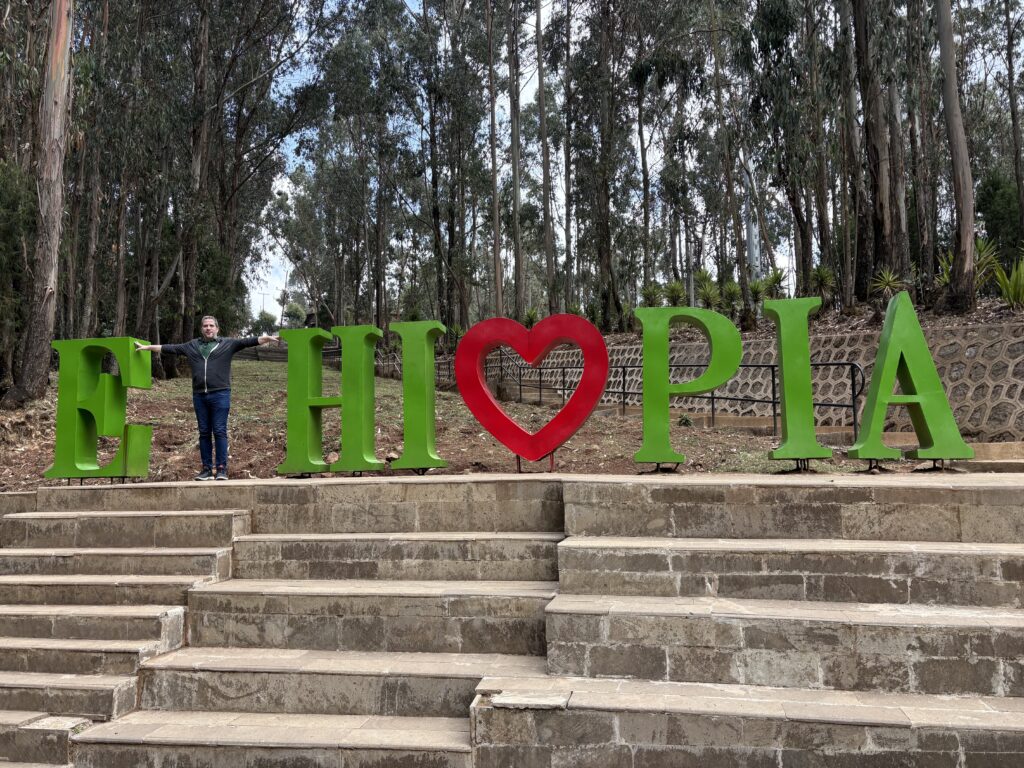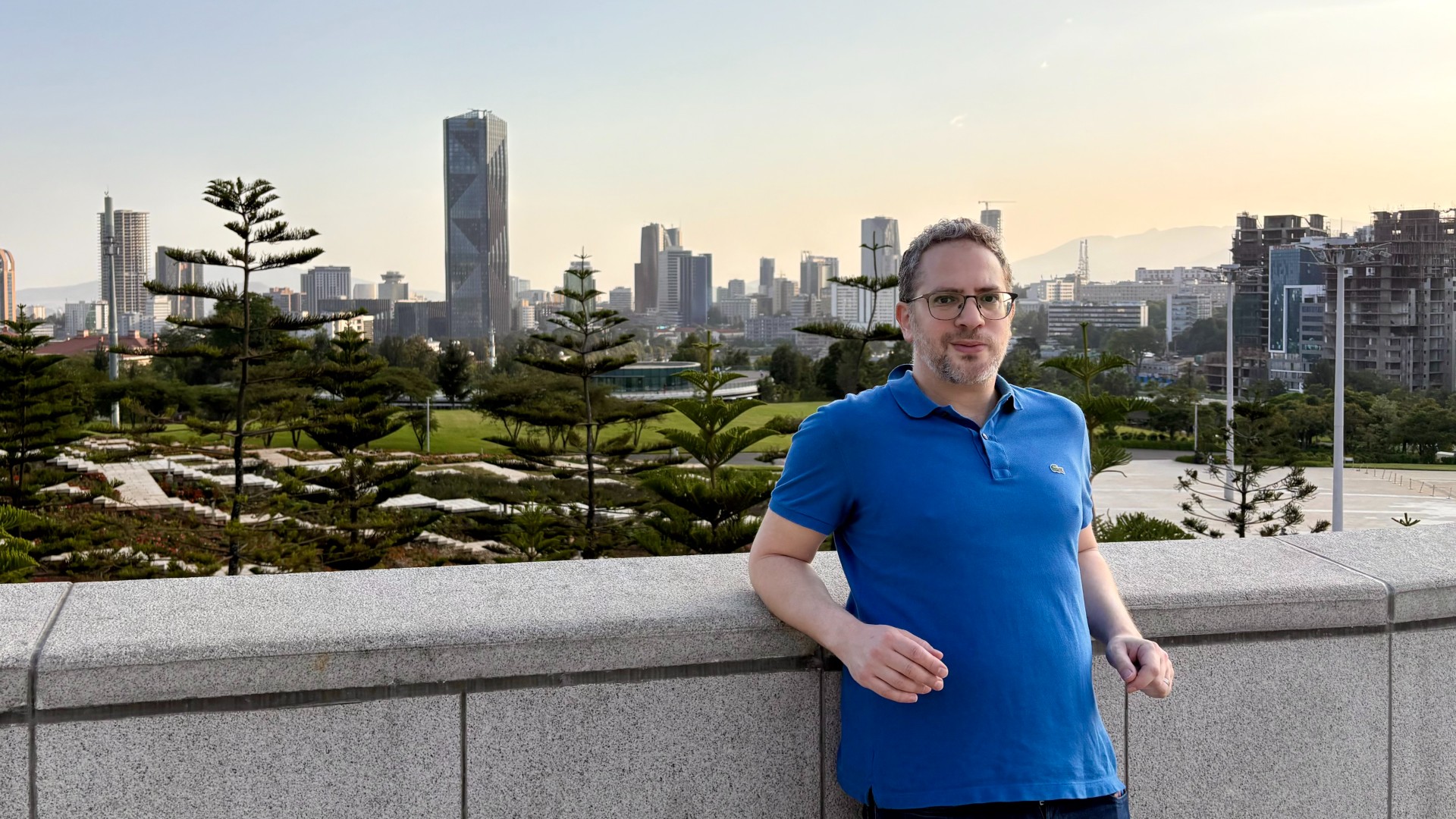From the start, I knew Riparian States was a big swing: a play about how a massive hydroelectric dam brought two of the world’s oldest civilizations to the brink of war would be anything but small. Despite how excited I was about the idea, I had no sense of how I’d wrestle it into a play.
Years after my initial idea, I’m within spitting distance of completing a draft of Riparian States, recipient of the inaugural Next Forever Commission. When submitting I wasn’t shy about my intentions to write a BIG play. I mean, it’s about the Nile, the longest river on the planet, and about Egypt and Ethiopia, both of which have arguable claims as the “cradle of civilization.” It’s also about climate change and the uncertainty it causes with regards to the impacts of the Grand Ethiopian Renaissance Dam, the largest infrastructure project ever built in Africa. To write with any truth about these complex issues, I needed grounding in topics I had little experience with: hydrology, engineering, international water treaties, and more.

The Next Forever’s partnership with Princeton’s environmental studies department opened the door to a wealth of knowledge and a network of brilliant scientists and thinkers from all over the world. For a year and half, I’ve researched and conducted dozens of interviews. I traveled to Cairo and chatted with an expert in geopolitics while we gazed at the Nile. I’m writing this from Addis Ababa where I talked to Ethiopians about their feelings around the dam and what it means for their country’s future.
The biggest question I faced in this process was: what do I do with all this learning I’ve amassed? What shape does my story want to take?
Last year I met up with playwright J.T. Rogers on the Upper West Side to try to answer these questions. J.T.’s a phenomenal guy, brilliant and kind. I greatly admired his plays Blood and Gift and Oslo, both geopolitical epics that are bold, funny, and grounded in humanity. “How do I do what you do?” I asked. This was not so much a question about craft, though his insights did help me with that too, but about the notion of taking up space. I felt strongly that Riparian States needed to have scale—this was not going to be play where three people sit in a room talking. But there’s an audacity when a writer states “I’m writing something hefty. It’s going to be long. It’ll have a lot of people in it.” A big play requires resources: time, space, and money—things few theatres have enough of these days. And how odd that in writing a play about the increasing scarcity of a vital resource, I would be the most hesitant about demanding resources from the organizations that are supporting it…
Riparian Space
Through all the research I’ve conducted and conversations I had, the play’s central characters and their dilemmas eventually emerged: a young Ethiopian woman investigates her brother’s mysterious death, an Egyptian and an American climate scientist grapple with ethics and their budding romance, an enigmatic figure known as “The Keeper” protects the Nile from forces that seek to destroy it. As of today, Riparian States has 26 characters (played by 14 actors), about 40 scenes, and a running time of 2:45. Its first act alone is longer than my plays American Fast and Dodi & Diana.
How do I feel about claiming that space? Honestly, I’m still grappling with it. People support my ambition, but I recognize all the ways I’ve been implicitly or explicitly told over the years that writers who aren’t bold-faced names, particularly writers of color, should stick to plays that are small, simple, or that dreaded word “produceable.” So is it an act of defiance or of lunacy to say that any playwright should feel the freedom to imagine stories at the scale they are meant to be told, and that audacious visions should not only be supported but encouraged?
What will become of Riparian States, I have no idea, but creating it has been a thrill. At the heart of the play is the idea that we are all, on a global level, deeply interconnected through water. We are responsible to one another and must learn how to share, coexist, uplift our fellow man. That the creation of this project has been met with such enthusiasm leads me to be believe that the era of big, deep, complex plays is not behind us and that we can aspire to an American theatre where boldness and ambition isn’t discouraged but celebrated. ✦
Extended Play is a project of The Civilians. To learn more about The Civilians and to access exclusive discounts to shows, visit us and join our email list at TheCivilians.org.
Author
-

Kareem Fahmy is a Canadian-born playwright and director of Egyptian descent. He received the 2022 Woodward/Newman Playwriting Award (for American Fast), a NYSCA/NYFA Playwriting Fellowship, the Janet Sloane Literature Residency at Yaddo, is a two-time finalist for the National Showcase of New Plays, and was named a Rising Leader of Color by TCG. American Fast is receiving a National New Play Network Rolling World Premiere at Artists Repertory Theatre, City Theatre, and InterAct Theatre. A Distinct Society will receive a co-world premiere at TheatreWorks Silicon Valley and Pioneer Theatre. Dodi & Diana (O’Neill NPC Finalist) received a world premiere at Colt Coeur. Other plays include Pareidolia, The In-Between, and an adaptation of the acclaimed novel The Yacoubian Building. Kareem’s work has been seen at Atlantic Theatre Company, Denver Center, Northlight Theatre, Capital Repertory Theatre, New York Stage & Film, and more. Commissions: Artists Repertory Theatre, Ensemble Studio Theatre/Sloan, Colt Coeur. Fellowships: The Old Globe, Oregon Shakespeare Festival, Sundance Theatre Lab. Co-founder/Chair of the Middle Eastern American Writers Lab. MFA (Theatre Directing), Columbia.
View all posts









